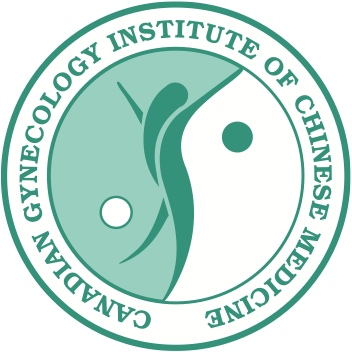Questions! One of the things that people are most surprised about after their first intake at a TCM clinic is how many questions they are asked. We ask questions about sweating, different kinds of pain, vision problems, bowel movements, diet, etc. Why do we ask so many questions? Because Chinese Medicine looks at the body as a whole, it takes seemingly unrelated symptoms and piece together the nature of the complaint. This allows for individualized diagnosis and treatment, thus increasing the rates of successful treatment. We have a saying in TCM: same disease, different treatment; different disease, same treatment. This means that two people coming in with the same disease (ie. Menstrual cramps) can have different diagnoses; and two people coming in with unrelated diseases (ie. One with menstrual cramps, one with headaches) can be given the same diagnosis.
Chief Complaint
Generally, an intake starts with questions about the reason people come in for TCM. For example, what the major symptoms are along with their onset and duration, frequency, severity, characteristics (type of pain, what makes it worse or better), accompanying signs and symptoms and other interventions that may have helped or hindered. This gives information about the location, thermal nature, and pathogenic nature of the disease, which helps to predict the course of the disease, guide diagnosis and treatment, and form treatment strategies that include frequency and length of time required for effective treatment.
The 10 (+) Questions
These are the questions that help to understand the underlying condition. By asking these questions, it can help to determine the root of the disease, any contributing factors and any pathologically related symptoms. There are 10 original questions, though most practitioners tend to ask more, so they will be included as well.
- Hot & Cold: do you generally feel cold or warm? Do you have a preference for warm or cool climates? Do you feel warmer at night? Do you feel chills or feverish? These are preliminary types of questions can help to find the location of the disease, the thermal nature of the disease, and the condition of yin and yang in the body. If there is found to be an abnormality, further questions may still be asked as to the degree, severity and interchangeability of the sensations of heat or cold in the body.
- Sweating: do you sweat on minimal exertion (ie. Walking short distances)? Do you ever sweat without cause? Do you sweat at night? Do you sweat on a particular area of the body? These preliminary questions give an idea of the state of the immune system, thermal nature of the disease and the state of the Body Fluids.
- Pain: how much pain are you in? Where is the pain? Can you describe the pain (dull, distending, sharp, burning, etc.)? Is there anything that makes the pain better? Is there anything that makes the pain worse? Does the pain come and go or is it constant? Is your pain worse during the day or at night? What caused the pain? These initial questions give an idea about the thermal nature of the pain, the influence of pathogenic factors and the state and flow of the meridians, Qi, Blood and Body Fluids.
- Head & Body: do you have any discomfort or heaviness or numbness in your head or body? Do you have dizziness or vertigo? Do you have a stifling sensation in the chest? Do you have any heart palpitations? Do you have the sensation of a lump in your throat? These questions give insight into almost all of the functions and movements in the body from Qi, Blood, Body Fluids, Organs, Meridians and invading pathogenic factors.
- Eyes & Ears: do you have difficulty hearing? Do you ever have ringing in your ears? Do you have any trouble with vision? Do you get red, burning, dry or itchy eyes? Do you ever see floaters in your vision? Do you have difficulty seeing at night? The eyes are the orifice of the Liver and the ears are the orifice of the Kidney. Any pathology with the eyes or ears will reflect the state of their organs and how Qi, Blood, Body Fluids and Essence are interacting within them. It should be noted that the channels and collaterals of all of the organs meet in the ears, and the essence of all of the organs meets in the eyes, thus the Liver and Kidney are not always the culprits in eye or ear diseases.
- Diet: Are you very thirsty or not thirsty at all? Do you have a preference for warm or cold drinks? Do you eat meals at regular times during the day? Do you have any dietary restrictions? Do you have a low or high appetite? Do you have bloating, distention or gas? Do you have a bitter, sour, sweet, acidic or bad taste in the mouth? Again, these preliminary questions cover almost all metabolic aspects in the body, from the organs to the thermal nature of disease to the Qi, Blood and Body Fluids.
- Urination & Defecation: How often do you urinate? Do you experience any urgency or dribbling with urination? Is your urine dark (not including vitamins)? Do you wake at night to use the washroom? Are your bowel movements regular? Do you experience diarrhea or constipation? Are your bowel movements unusually pungent? Do you have any undigested food in your stools? These initial questions generally show the state of organs such as the Spleen, Stomach, Urinary Bladder, Kidney, and Large Intestine (but can also include others), as well as their Fluids.
- Sleep: how many hours of sleep do you get a night? What time do you go to bed? Do you have any trouble falling asleep? Do you have any difficulty staying asleep? How many times do you wake a night? Do you have many dreams? Do you have any trouble getting up and going in the morning? Do you feel rested on waking? Sleep most often shows the condition of Yin, Yang, Qi and Blood and many organs, but the Heart, Liver and Kidney in particular.
- Women’s Questions: is your menstruation regular? Do you have pain with menstruation? Do you have any PMS symptoms? Do you have any abnormal discharge? How many pregnancies have you had? Have you had any problem pregnancies? Have you had any difficult child births? I will cut this section short on the questions that a practitioner might ask, only because there are so many! And all of these questions show if there is any abnormality in any body function but also in the extraordinary vessels that play a huge role in the metabolic system of all women.
- Emotions: do you tend towards certain emotions such as anger, depression, overthinking, or fear? Do you frighten easily? Do you tend to dwell on thoughts? Does your thinking impact your sleep? All emotions in Chinese Medicine are related to a specific organ. Tending towards certain emotions can predict the state of the organ and its imbalances.
- Energy: how are your energy levels? Do you have enough energy to get through the day? Do you have a lull of energy after meals or any other time during the day? While pathogenic factors are generally involved, this is a direct reflection of the state of Qi within the body.
These are some of the basic questions you might hear during an intake. Based on the answers you give to these questions, more in depth questioning might occur. You’ll also notice that many of these questions are subjective in nature. This is because more often than not, life is a subjective experience. For example, everybody perceives pain differently and in Chinese Medicine, pain is treated on an individual basis. Another example, everybody has a different gauge as to how much energy is enough to have a life with vitality.
This is also usually just the beginning of an initial intake. For more information on Chinese Medicine, intakes, or to book an intake or appointment, please contact us.
Caroline Prodoehl
References:
Yi, Qiao (2008). Traditional Chinese Medicine Diagnosis Study Guide. Eastland Press. Seattle, Washington.

